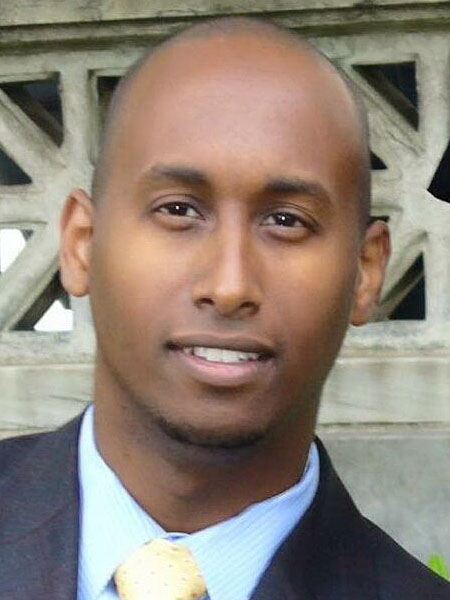Family, probing lawyer's death, plans to appeal ruling shielding prosecutor from answering questions

Gugsa Abraham “Abe” Dabela. Photo from Justice4abe.com.
The family of a Connecticut lawyer found shot to death in his overturned Mercedes SUV plans to appeal a federal magistrate judge’s decision shielding a prosecutor from answering questions about his decision-making in the case.
The family of Gugsa Abraham “Abe” Dabela contends the lawyer was murdered and police officials in Redding, Connecticut, had conspired to cover up the crime.
U.S. Magistrate Judge Donna Martinez ruled on March 23 that the prosecutor, Danbury State’s Attorney Stephen Sedensky III, does not have to answer questions that would reveal his deliberations, debate and analysis that led him to conclude Dabela’s death was not a homicide.
Lawyers for Dabela’s relatives told the Associated Press they intend to challenge the ruling.
Sedensky closed the investigation last year. The prosecutor said in a statement that Dabela’s car rolled over and Dabela’s gun discharged, resulting in his death. Police, on the other hand, had described Dabela’s death as a suicide.
The suit, filed in April 2016, said police would have conducted a proper investigation if Dabela, an Ethiopian American, had been white. The suit suggests Dabela had irked local officials and describes a mysterious text message, deleted after Dabela’s death, that read “turn he just didn’t.”
The suit cites evidence said to raise questions about the investigation. Police took no photographs before removing Dabela’s body from the car and never tested his hands for gun residue. Nor was any DNA found on the trigger of the gun. A shell casing was found, but no bullet was recovered from the scene during the initial investigation. Police later found a bullet at the scene, but it had no DNA or blood on it, indicating it wasn’t the bullet that killed Dabela. In addition, a muddy shoe print was found on the back of Dabela’s jacket.
Sedensky is not a defendant in the case against the town of Redding, some of its police officers and “killer John Doe.” The prosecutor had asserted he was protected by the deliberative process privilege, which protects communications that are part of the decision-making process of a governmental agency.
Martinez agreed that the privilege applied, and said a balancing test does not favor disclosure. “Inquiry into the exercise of prosecutorial discretion would have a significant negative impact on the state’s attorney,” Martinez said. “It is in the public’s interest to encourage—not discourage—unreserved discussion and frank analysis in prosecutorial decisionmaking.”



